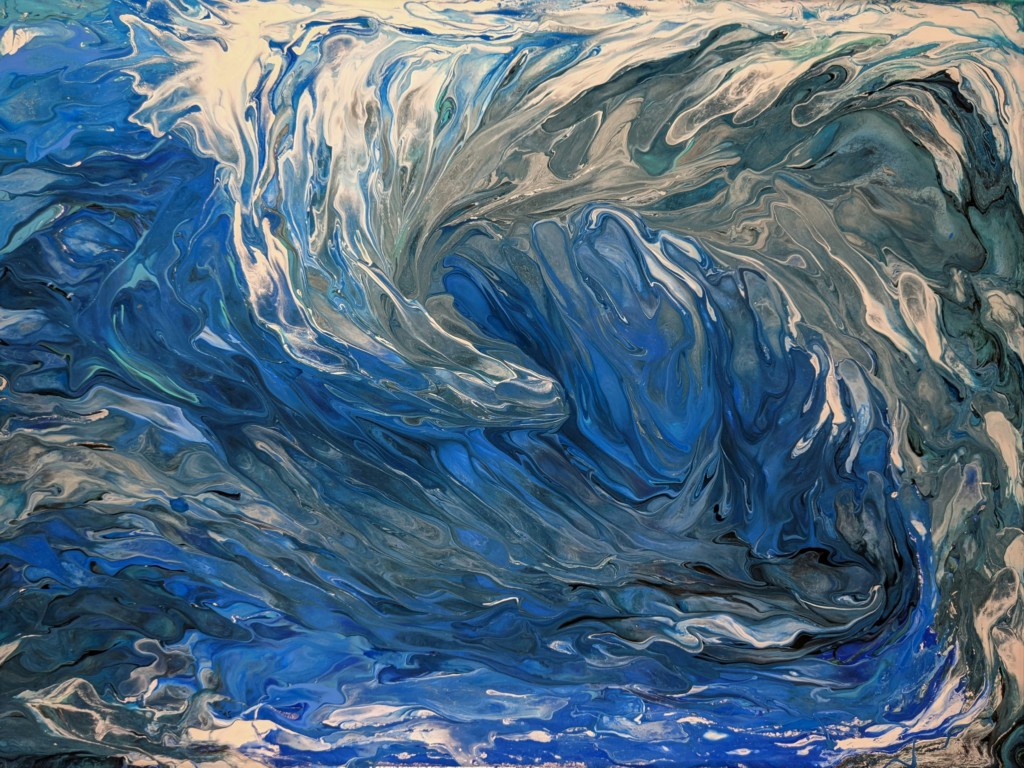Here is Louis Glazzard talking about his course Poetic Theft: From Inspiration to Transformation; A transformative workshop series about harnessing your inspirations to expand your writing.
In Pursuit of Originality…
Everything I’ve ever created has been inspired by something. Well, almost everything. When I first started writing I was obsessed with being original. In fact, I used to obsess over ways in which I could create something entirely new.
When you start at places in literature where the thread of poetic lines run through the culture, you start to bear its weight. I wanted to write the next ‘I saw the best minds of my generation’, ‘To be or not to be’ or ‘Hope is a thing with feathers’ – the magnetism of these lines, so heavily quoted and popular. I tried and tried, fretting to make my own original version. But something else started to happen entirely – I stopped writing.
Theft without directly copying work
Often, we find inspiration from all around us. Whether it’s a conversation you heard or an interaction you experienced, writing poetry about these moments is certainly a form of transformation. But what about directly copying work? I would never sit down and copy the syntax of a line, to repurpose it myself. Instead of trying to be original I wondered what would happen if I explored my points of inspiration a little more honestly instead.
Parallels as a means of poetic theft
When I wrote my first poetry book, the best example I can give of this is drawing a parallel with my upbringing and experiencing alcoholism within my family, in tandem with Anne Bronte’s The Tenant of Wildfell Hall. I read this book at a time where, I was trying to make sense of my own need for escape. The protagonist was an artistic spirit at the forefront of a destabilising home life. The parallels were clear. So I set the task of writing a poem. First, trying to be subtle. Then on the redraft, I embraced the directness instead. I directly referenced and found space to draw that link instead of leaving the reader to scavenge.
A couple of years ago, just after my poetry book came out, I also attended a book talk. This author was writing a novel about fandom and narratives of intensity. At the talk, my face lit up when they went through each point of inspiration. Instead of talking around this and parading themselves as writing something truly unique, they did the opposite. The conversation became instead ‘I stole this reference from here’ or ‘I loved this book so I wrote a section just like theirs’ or ‘I watched this TV show and stole this characters personality’. The conversation was so refreshing and it’s true of the practice of art. Nothing good can come from thinking one’s work is entirely original. Embrace instead, stealing ideas and transforming them.
Poetic Theft!
This then becomes a discussion around how we consume and publish stories. Everyone wants something familiar but different in slight. When you come to pitch bodies of work for publication, the process is much easier if you’re saying my poem, my collection, my pamphlet is ‘Moby Dick meets Mean Girls’ or ‘The poetic voice of Emily Bronte writing about climate change’. Of course these are hypothetical, but have I piqued your interest them? It’s a much better way to speak about our art than ‘I am revolutionising, speaking on X topic for the first time’.
Someone has, most likely written on your topic of choice. Being honest about inspiration is really important. I would argue instead that it fosters more inspiration. I would argue too that each popular artist brings a flair of something familiar, but it’s how you share your unique voice and experience within it, that matters the most. It’s called poetic theft, and it’s important for our writing to grow.
Your next source of inspiration is right in front of you in the form of your favourite TV show, book, film etc. Why search for inspiration’s divine intervention when it’s sat right in front of you? Because it’s true ‘Immature poets imitate, and mature poets steal.’
Louis Glazzard is teaching the course Poetic Theft: From Inspiration to Transformation 5 fortnightly Zoom sessions on Thursdays, 7–9pm (BST), starts 6 June 2024.

Add your Reply
You must be logged in to post a comment.